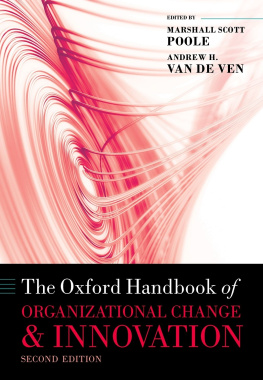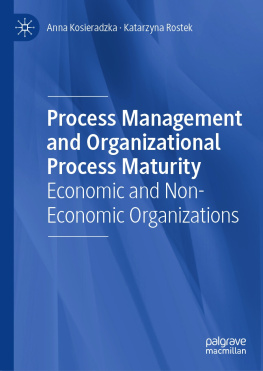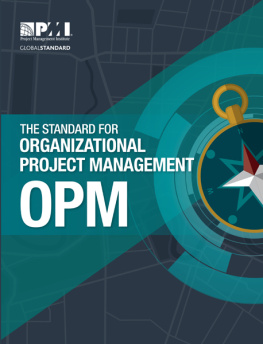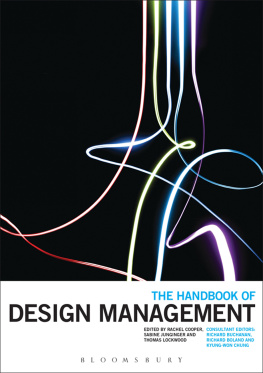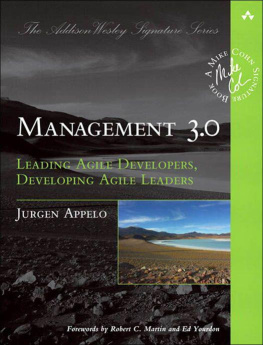About the Authors
Derek S. Pugh is Emeritus Professor of International Management at the Open University Business School. He is an Academician of the Academy of Learned Societies in the Social Sciences. He has also edited Organization Theory: Selected Readings (fifth edition, 2007) for Penguin. His website is www.derekpugh.com.
David J. Hickson is Emeritus Professor of International Management and Organization at the Bradford University School of Management, England. He holds a Swedish Honorary Doctorate, is the first Honorary Fellow of the European Group for Organizational Studies, was a Fellow of the Netherlands Institute for Advanced Studies, and was Founding Editor-in-Chief of the international research journal Organization Studies. He has lectured at leading business schools worldwide.
The authors have also co-authored Management Worldwide (Penguin; new edition, 2002) and Professor Hickson has edited Exploring Management Across the World (Penguin, 1997), its companion volume.
Derek S. Pugh and David J. Hickson
WRITERS ON ORGANIZATIONS
Sixth Edition

PENGUIN BOOKS
UK | USA | Canada | Ireland | Australia
New Zealand | India | South Africa
Penguin Books is part of the Penguin Random House group of companies whose addresses can be found at global.penguinrandomhouse.com.

First published by Hutchinson 1964
Second edition published in Penguin Books 1971
Third edition 1983
Fourth edition 1989
Fifth edition 1996
Sixth edition 2007
Copyright D. S. Pugh, D. J. Hickson and C. R. Hinings, 1964, 1971, 1983
Fourth, fifth and sixth editions copyright D. S. Pugh and D. J. Hickson, 1989, 1996, 2007
The moral rights of the authors have been asserted
ISBN: 978-0-141-91124-3
This ebook is copyright material and must not be copied, reproduced, transferred, distributed, leased, licensed or publicly performed or used in any way except as specifically permitted in writing by the publishers, as allowed under the terms and conditions under which it was purchased or as strictly permitted by applicable copyright law. Any unauthorized distribution or use of this text may be a direct infringement of the authors and publishers rights and those responsible may be liable in law accordingly.
To our parents and to our professional forebears

ONE
The Structure of Organizations
The decisive reason for the advance of bureaucratic organization has always been its purely technical superiority over any other form of organization.
MAX WEBER
It may not be impossible to run an effective organization of 5,000 employees non-bureaucratically, but it would be so difficult that no one tries.
THE ASTON GROUP
The visible hand of managerial direction has replaced the invisible hand of market mechanisms in coordinating flows and allocating resources in major modern industries.
ALFRED D. CHANDLER
Transaction cost economizing is, we submit, the driving force that is responsible for the main institutional changes [in corporations].
OLIVER E. WILLIAMSON
Adhocracy [the innovative configuration] is the structure of our age.
HENRY MINTZBERG
Increasingly your corporations will come to resemble universities or colleges.
CHARLES HANDY
The task [of the transnational organization] is not to build a sophisticated matrix structure, but to create a matrix in the minds of managers.
CHRISTOPHER BARTLETT and SUMANTRA GHOSHAL
All organizations have to make provision for continuing activities directed towards the achievement of given aims. Regularities in activities such as task allocation, supervision and coordination are developed. Such regularities constitute the organizations structure, and the fact that these activities can be arranged in various ways means that organizations can have differing structures. Indeed, in some respects every organizations is unique. But many writers have examined a variety of structures to see if any general principles can be extracted. This variety, moreover, may be related to variations in such factors as the objectives of the organization, its size, ownership, geographical location and technology of manufacture, which produce the characteristic differences in structure of a bank, a hospital, a mass production factory or a local government department.
The writers in this section are concerned to identify different forms of organizational structures and to explore their implications. Max Weber presents three different organizational types on the basis of how authority is exercised. He views one of these types bureaucracy as the dominant modern form. Derek Pugh and the Aston Group suggest that it is more realistic to talk in terms of dimensions of structures rather than types. Alfred Chandler shows how the management structure flows from the company strategy. Oliver E. Williamson points to the way in which the pressures on the organization to process its information efficiently leads to the type of relationship, market or hierarchical, which is developed. Henry Mintzberg describes a range of types of modern organizations and their effectiveness. Charles Handy identifies some established structures of organization, but suggests that a distinctively different new form is coming into being. Christopher Bartlett and Sumantra Ghoshal argue that for multinational firms to be successful in the current global market environment, they must develop an innovative new structure and culture of working.
All the contributors to this section suggest that an appropriate structure is vital to the efficiency of an organization and must be the subject of careful study in its own right.
Max Weber
Max Weber (18641920) was born in Germany. He qualified in law and then became a member of the staff of Berlin University. He remained an academic for the rest of his life, having a primary interest in the broad sweep of the historical development of civilizations through studies of the sociology of religion and the sociology of economic life. In his approach to both of these topics he showed a tremendous range in examining the major world religions, such as Judaism, Christianity and Buddhism, and in tracing the pattern of economic development from pre-feudal times. These two interests were combined in his classic studies of the impact of Protestant beliefs on the development of capitalism in Western Europe and the USA. Weber had the prodigious output and ponderous style typical of German philosophers, but those of his writings which have been translated into English have established him as a major figure in sociology.
Webers principal contribution to the study of organizations was his theory of authority structures, which led him to characterize organizations in terms of the authority relations within them. This stemmed from a basic concern with why individuals obey commands, why people do as they are told. To deal with this problem Weber made a distinction between power, the ability to force people to obey, regardless of their resistance, and authority, where orders are voluntarily obeyed by those receiving them. Under an authority system, those in the subordinate role see the issuing of directives by those in the superordinate role as legitimate. Weber distinguished between organizational types according to the way in which authority is legitimized. He outlined three pure types, which he labelled charismatic, traditional and rationallegal, each of which is expressed in a particular administrative apparatus or organization. These pure types are distinctions which are useful for analysing organizations, although any real organization may be a combination of them.



